Saturday Feb 21, 2026
Saturday Feb 21, 2026
Wednesday, 22 May 2019 00:00 - - {{hitsCtrl.values.hits}}
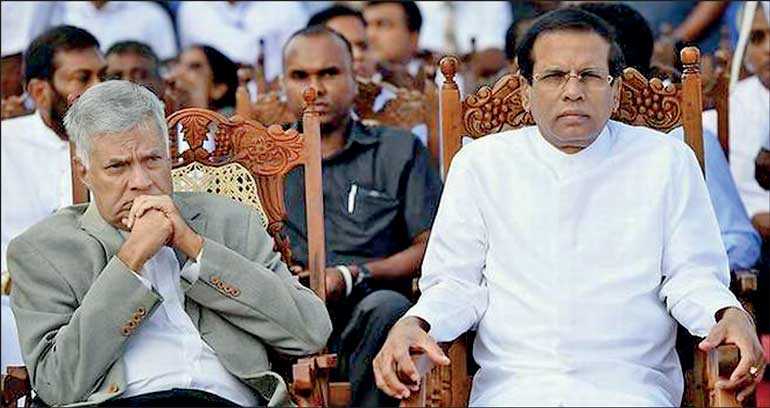
Whatever the Head of State, the President, or the Prime Minister says, only renewed confidence in Sri Lanka could take the country forward from its state of despondency, disbelief and mistrust. When no one trusts the President or the Prime Minister, there cannot be any confidence in the political system. Those who are not trusted cannot instil confidence in others. 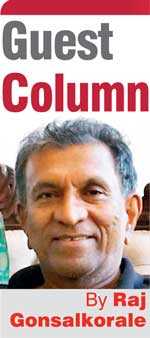
Based on the reports, news items, social media comments and other means of information, it is clear that those in the political system starting from the President downwards, knew of the danger of Wahhabism and the fundamentalism it introduced, and they knew of the actual result of that fundamentalism, the suicide bombing, killing of hundreds of innocent civilians, the injuring of so many and the destitution of their families not just due to the killings or the injuries but due to the attack on the country’s economy.
Despite assurances that life is “normal”, the ordinary person, the common man, knows it is not. He knows he cannot send his children to school, that his small business has hardly any business, and that he cannot trust anyone.
In Sri Lanka, the buck does not seem to stop with anyone. The political leaders are never responsible for the trust voters bestow on them. In countries where such responsibility is accepted, our leaders would have been in jail pending further investigations. After all, it is their inaction and indifference that resulted in the killing of hundreds of innocent people and injured many more.
It is their inaction that has plunged the country’s economy to a low it has never been in the country’s history. No, in Sri Lanka, it an office assistant or a sergeant or a lower-ranked Policemen who will pay a price for the misdeeds of those who have far more to lose than such lower-ranked officials.
This article is however not about these issues as they have been dealt in great details by many others, albeit with no consequences. Leaders carry on as if the massacres were Sunday picnics and life goes on for the politicians. Their security has been increased and their families and children are safe. Their children don’t go to school.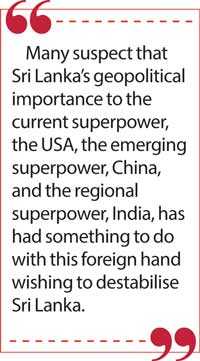
The ordinary citizen is concerned about things they simply cannot understand or come to terms with. They cannot understand why only Catholics were targeted, and if it were a vendetta against Christians, why Anglicans or Methodists and other Christian denominations were not targeted.
Some say this was a message to the Pope. All Sri Lankans are grateful that the net was not cast wider by the attackers, and all Sri Lankans hope and pray that no further killings take place. They cannot however understand why Catholics, who have never had political or religious issues with others, were the targets of these sick individuals.
The subsequent attacks on some Muslim commercial establishments, mosques and some ordinary Muslim folk were clearly organised vulture attacks and there could be more attacks of this nature as these vultures are still at large.
Many columnists and as well as ordinary people one talks to, seem to be pointing the finger at a hidden, foreign hand as the real brains behind these atrocities. If this is so, however much our discredited politicians assure us, Sri Lankans are not safe as the foreign hands still operate from somewhere and in all likelihood, they will never be apprehended.
The fact that the incidents occurred under the very noses of the country’s political leadership and the fact that the preparations for the incidents that occurred, and some possibly yet to occur, have been so extensive and deep-rooted, it does not require an Einstein to say that preparations have been going on for years and not months, again, under the very noses of the political leadership of the country.A foreign hand has therefore been very active in Sri Lanka for years.
The country may never get to know who this foreign hand is. However, by drawing conclusions from different realities, one may come to some understanding as to the environment in the country that may have attracted different elements to destabilise a country that was on the move.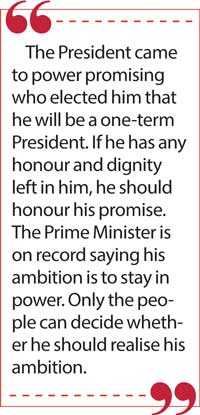
Firstly, the spread of Wahhabism and its influence in the country, particularly in the East, cannot be called an accidental or a natural phenomenon. Sri Lankan Muslims have cohabited well as Sri Lankans (or Ceylonese prior to that) for hundreds of years and there was never at attempt to restate or re-emphasise the tenets of Islam. What perhaps changed this was oil and the emergence of Saudi Arabia as the financier of Wahhabism and its growth beyond the shores of Saudi Arabia. The lucrative employment opportunities for workers from Sri Lanka and several other Asian countries provided the opportunity for the export of Wahhabism through these workers and the grounding and spread of Wahhabism in the countries these workers came from.
In Sri Lanka, the spread of Wahhabism created tensions amongst communities, particularly amongst the Sinhala Buddhists and the Wahhabi Muslims. Muslims, particularly Wahhabi Muslim women, started to look different to other Muslims as well as the Sinhalese and other communities. Some parts of the country were beginning to look like outposts of Wahhabi outlands in Saudi Arabia.
It is very likely that the foreign hand saw an opportunity to make use of this environment of tension to set in motion a plan to commence the destabilisation of Sri Lanka and establish a fundamentalist heartland in Buddhist Sri Lanka! A clever tactic as a terrorist attack on Buddhists could have been a setback to their long term plans of destabilising Sri Lanka and also establishing a staging post to make incursions into India and create unrest there. Many suspect that Sri Lanka’s geopolitical importance to the current superpower, the USA, the emerging superpower, China, and the regional superpower, India, has had something to do with this foreign hand wishing to destabilise Sri Lanka.
In the race or superpower status, we can ask ourselves which country might be most concerned about the presence and the increasing influence of the country that is challenging the status quo. Readers can come to their own conclusions as to who benefits most if Sri Lanka ceases to be the economic and strategic haven for the country that has made substantial inroads in Sri Lanka in recent times.
Reports that India had provided ongoing intelligence information on possible terrorist attacks (routinely ignored by the political establishment in Sri Lanka according to the former Army Commander Field Marshall Sarath Fonseka) gives us an indication as to where India stands as far as this superpower rivalry is concerned. It is clear that India does not wish to see any extremist Islamic operations in their backyard and for it have incursions into India.
Whoever the foreign hand is, its intention appears to be one of controlled, long-term destabilisation of Sri Lanka through a pseudo good Samaritan appearance, and offering its assistance to Sri Lanka to fight a brand of terrorism as foreign as snow in a Saudi dessert to Sri Lanka. Who could provide real assistance to Sri Lanka at this 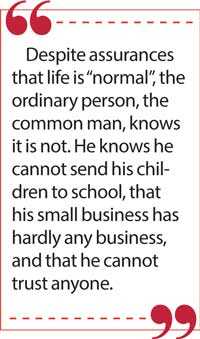 juncture? The answer is that only Sri Lankans themselves are able to assist the country and no one else. When one says Sri Lankans, the reference is to the millions of very ordinary Sri Lankans and not the relative handful of people who have their one-year child’s birthday party at the Shangri-La or some other five-star hotel.
juncture? The answer is that only Sri Lankans themselves are able to assist the country and no one else. When one says Sri Lankans, the reference is to the millions of very ordinary Sri Lankans and not the relative handful of people who have their one-year child’s birthday party at the Shangri-La or some other five-star hotel.
These millions of ordinary people could show to the foreign hand that they are united in their resolve to ensure the foreign hand ilk does not establish a foothold in Sri Lanka. These ordinary people can demonstrate that they respect and honour and treat as equals, their fellow ordinary citizens, irrespective of their religious beliefs, their ethnicities and their stations in life.
They can demonstrate that only Sri Lankan brands of diversity will be tolerated and will prosper in Sri Lanka and that no imported brands of religious diversity will be welcome in Sri Lanka. Wahhabism and other religious fundamentalist sects should have no place in Sri Lanka. Ethnic or religious based political parties should have no place in Sri Lanka. All political parties should encourage diversity within their ranks at all levels of political governance.
If Sri Lanka is at peace and its social and societal equilibrium is maintained through a governance model that is based on acceptance and the embracing of diversity of the country and equal rights and opportunities for all, no foreign hand will be able to meddle and sully the good name of the country. They will if Sri Lankans mistakenly show discord and division as natural ingredients of diversity.
The present leadership of the country cannot unite the country. They have done far more damage than any good for the country. They are not trusted and they lack credibility. They are valueless currency. Given their mishandling, deceit and divisive politics and governance, they should vacate their offices and allow the people of the country to elect leaders who would emulate the words of John F. Kennedy and ask not what the country can do for them, but what they can do for the country.The President came to power promising who elected him that he will be a one-term President. If he has any honour and dignity left in him, he should honour his promise. The Prime Minister is on record saying his ambition is to stay in power. Only the people can decide whether he should realise his ambition. Both have shown their incompetence and the level of their capabilities and their fitness to hold the two highest offices in the country. They should test the peoples view and their will at this juncture on their suitability to govern the country and their ability to restore confidence amongst Sri Lankans in their own country.